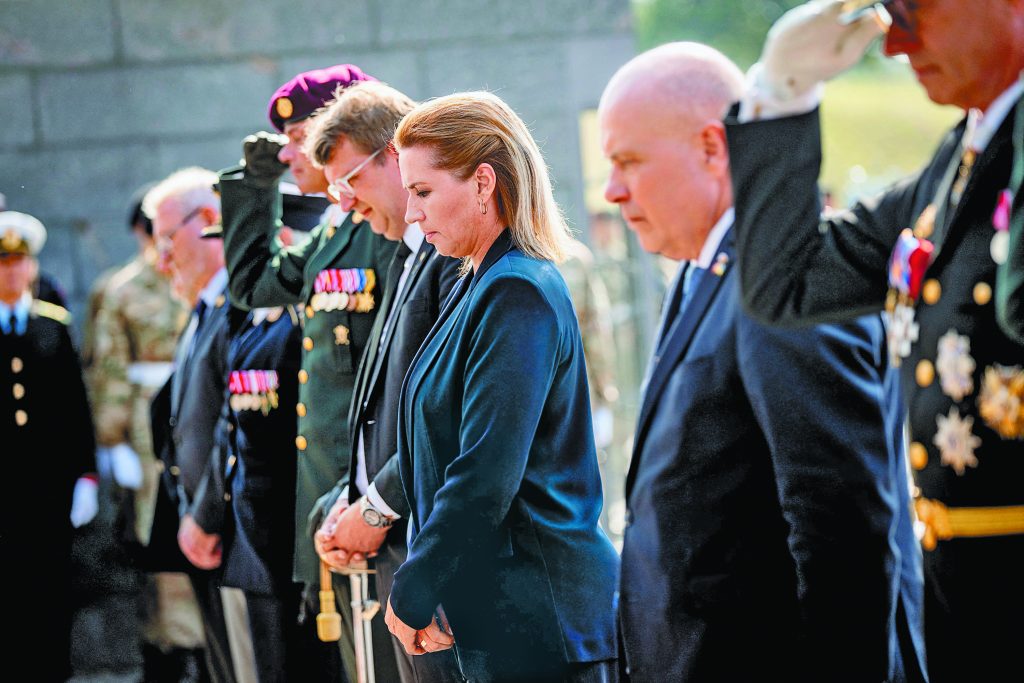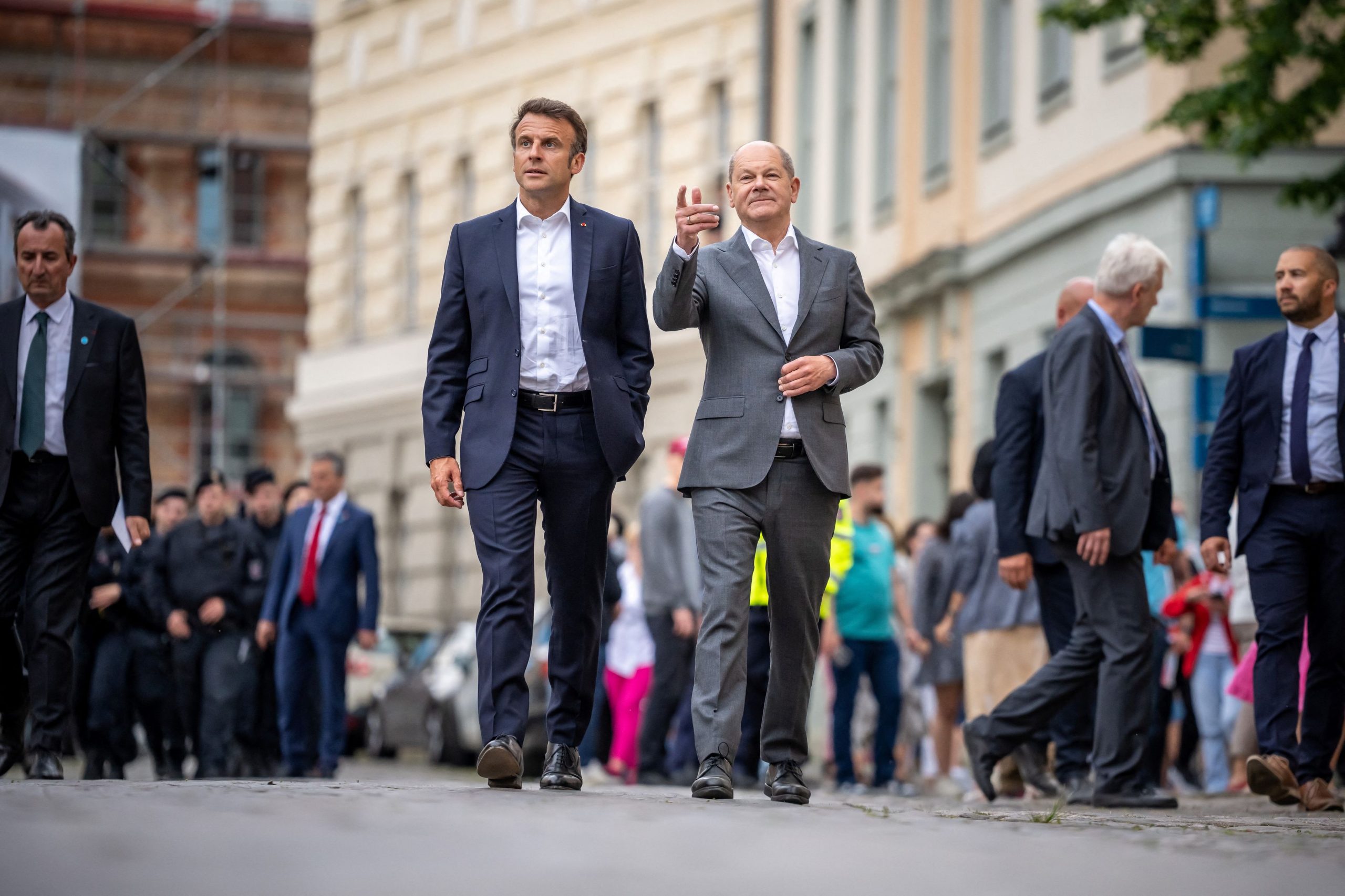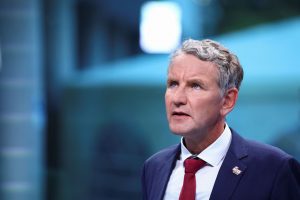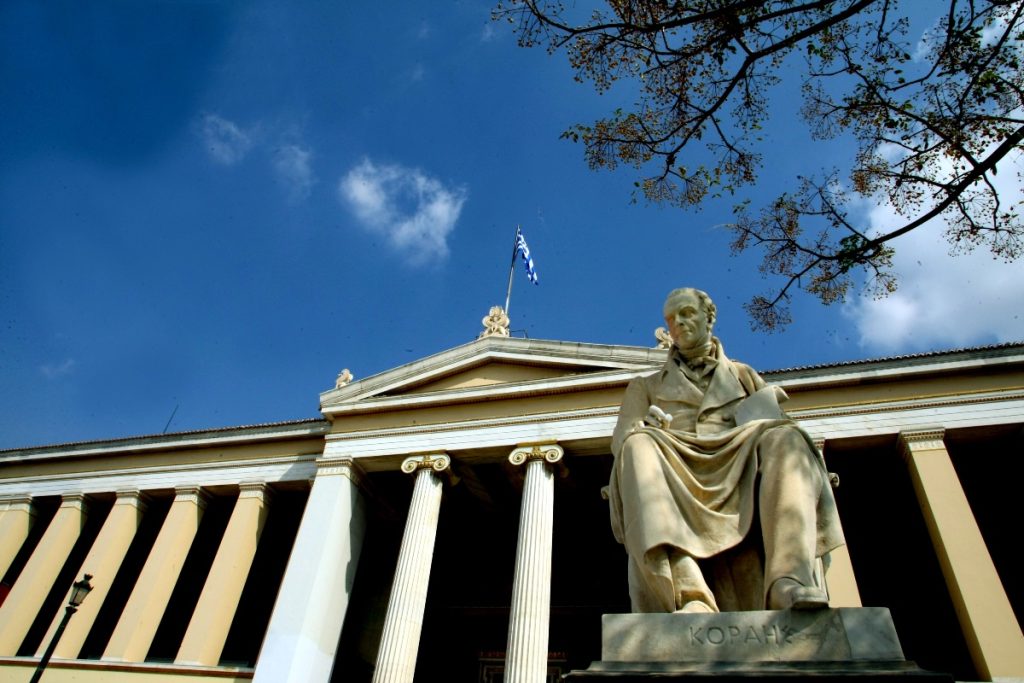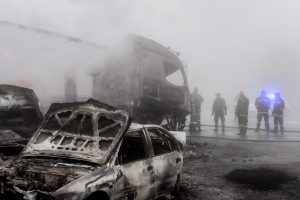BERLIN—At a recent debate, a German voter had some pointed criticism for Chancellor Olaf Scholz : The German government is unable to govern and its ministers are bickering like children.
Instead of pushing back, Scholz conceded the point. “The truth is: You are right,” he said. “But what would be your solution? I mean, I’m asking for a friend.”
The exchange triggered little controversy in Europe’s largest economy, once considered a paragon of good governance. It is now all but taken for granted that politicians can agree on little here, and implement even less. Recent gains by Germany’s far-right Alternative for Germany , or AfD, in state elections dealt Scholz’s fractious government another blow.
France, which for decades has been the engine of the European Union along with Germany, has found itself in a similar state of political paralysis after elections in June left Parliament divided between a multitude of parties.
President Emmanuel Macron formed a center-right government , even though a coalition of left-leaning parties won the most seats in the National Assembly. That leaves his government vulnerable to challenges from Marine Le Pen ’s far-right National Rally, if it were to decide to back a no-confidence vote against the government or refuse to support his budget.
Political fragmentation and polarization have tied the hands of political leaders , who can govern only in unwieldy coalitions between left- and right-leaning parties. Governments have struggled to find common ground on even basic issues, much less some of their most acute problems, such as handling growing numbers of immigrants, the war in Ukraine and stagnant economies.
“Leaders are not—and will not be—able to build majorities around a consensus for doing what’s needed, and the absence of decisive reforms to tackle the drivers of the populist surge, such as the weak economy and mass migration, is reinforcing this vicious circle,” said Mujtaba Rahman , a senior director with the Eurasia Group consulting firm and a former EU official.
As a result, the EU and its governments have been failing to fulfill their commitments to voters and risk falling further behind competitors such as the U.S. and China. At the same time, higher borrowing costs and sluggish growth are putting fiscal pressure even on erstwhile powerhouses such as Germany.
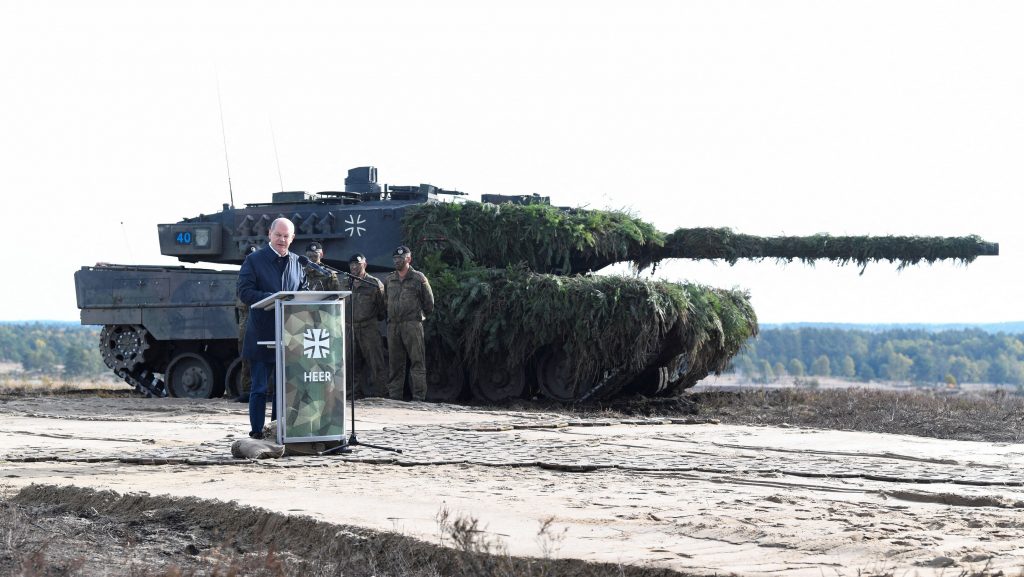
European countries have struggled to increase arms production to meet the needs of Ukraine. REUTERS/Fabian Bimmer/File Photo
Germany’s three-way coalition, featuring Scholz’s Social Democrats, the Greens and the pro-business Free Democrats, has been able to agree on some policies that polls show most people see as less urgent, such as legalizing marijuana and allowing gender self-identification.
But reaching consensus on a host of other issues has proven elusive. European countries have struggled to increase arms production to meet the needs of Ukraine or to agree to continentwide policies on immigration. Scholz’s government hasn’t delivered on promises to ease the housing crisis, cut red tape, improve infrastructure and reduce crime. Trains are notoriously late, corporate taxes are the highest among peer nations, and infrastructure is crumbling: A bridge collapsed in Dresden last month because of delayed repairs. Meanwhile, despite Macron’s promises to cut public spending, France’s deficit and debt have actually risen during his terms.
Voter dissatisfaction with mainstream politics has led to a gradual fragmentation of political groups: There are now seven significant parties, three of which are on the political fringes, making a coherent coalition nearly impossible, both at a federal level and in most of Germany’s 16 states, said Prof. Manfred Güllner , founder of Forsa, one of the largest German pollsters.
The far-right AfD is now the second-largest party in nationwide polls, while in some eastern states it has become the biggest political group, forcing rivals into complicated coalitions designed to keep it out of power. At the same time, a new far-left party, known as BSW, which like the AfD is pro-Russian and anti-NATO, has overtaken mainstream parties in local elections.
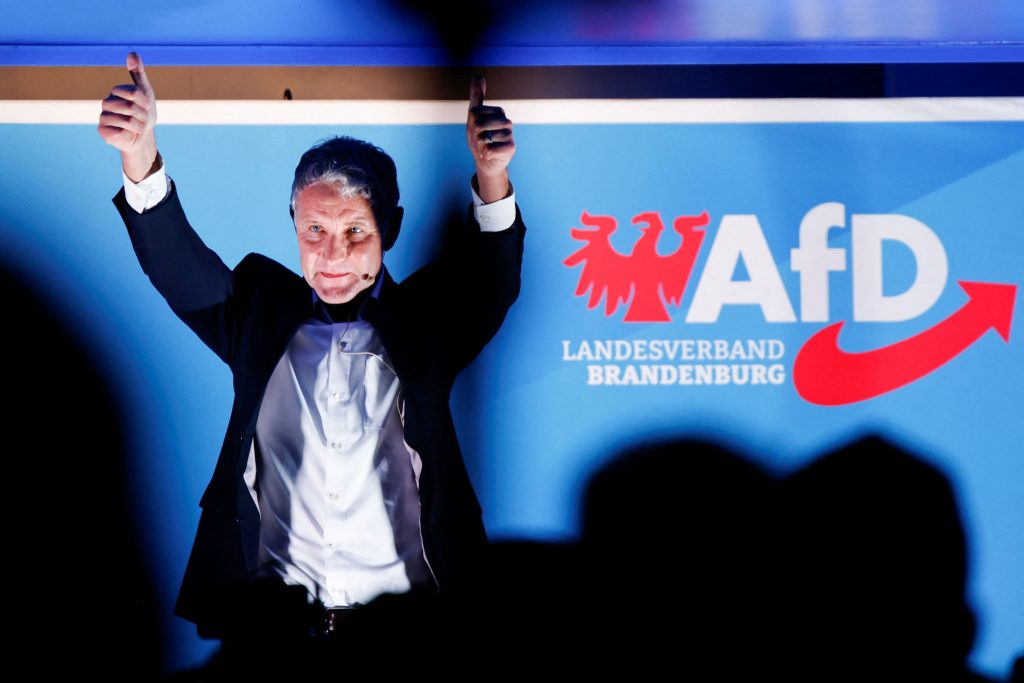
Alternative for Germany (AfD) party leader in Thuringia state Bjoern Hoecke gives thumbs up during an election campaign rally for the upcoming Brandenburg state election in Cottbus, Germany, September 19, 2024. REUTERS/Axel Schmidt
This has long been the case in smaller nations such as Sweden or the Netherlands, but paralysis has now become a structural feature of Europe’s largest political systems, Güllner said. “We always had alternatives and clear majorities around leadership in the center, but now there is no plausible majority, no uniting force,” he said. “The prospect is hopeless.”
To be sure, Germany’s government has long struggled to implement major changes, even dating back to Angela Merkel ’s 16-year tenure, but her governments benefited from steady economic growth and a relatively stable geopolitical environment, said Prof. Clemens Fuest , head of the Munich-based Ifo Institute that advises the government. Now, Fuest said, internal and external shocks have exposed the government’s inability to implement policies.
In France, Macron originally ascended to the presidency by creating his own upstart political party. He was once seen as a great hope for leading European integration and changing the bloc and his own country. Macron did have some successes, including bringing down unemployment and attracting foreign investment.
But, after two terms, he has become an example of France’s and the EU’s decline into dysfunctionality, said Manuel Valls , a former French prime minister. The French state is now having a crisis of legitimacy in the eyes of citizens who are used to expecting everything from the government, Valls said.
“Our institutions and our democracy will be put to the test,” Valls said. “We risk experiencing a chaotic situation when the country would need clear direction to restore, for example, public accounts and authority.”
Europe can’t snap out of its malaise even in the face of war in Ukraine. In the third year of the war, the EU has failed to meet the pledge to deliver one million shells to Kyiv, while also failing to match Russia’s expansion of arms production. The military stockpiles of France, Germany and others are all but depleted and there is little sign of the promised upscaling of their defense capabilities, said Ivan Krastev , a fellow with the European Council on Foreign Relations, a think tank.
“What is happening in Europe with military production, even at a time of a perceived existential threat from Russia, is a joke,” he said. “There is no majority that can deliver on key challenges, and the foundation of state legitimacy is the ability to do things, which is now obviously lacking.”
Some countries in Eastern Europe, where governments have been able to muster large majorities, are having more success. Hungarian Prime Minister Viktor Orban , who has long tangled with other EU leaders and built what he describes as an “illiberal state,” has attracted foreign investment by offering tax incentives and working with China.
Scholz and Macron have in recent months paid visits to Serbian President Aleksandar Vucic , who has been criticized by diplomats and democracy watchdogs for being autocratic. European leaders have sought his help with migrants and asylum seekers making their way to Europe. Vucic cracked down on migration routes through his country, reducing somewhat, and temporarily, the influx to upstream nations such as Germany.
European leaders are also interested in access to the Balkan nation’s large reserves of lithium. The metal, a component of batteries used in electric vehicles and elsewhere, is crucial for Europe’s economic transition away from fossil fuels. It is found in Germany and across the EU but cannot be mined because of environmental regulations that governments haven’t been able to agree on amending.
“He might be lightly autocratic, but the Serbian president can actually dig out the lithium if he wants to,” a senior German official said.
Write to Bojan Pancevski at bojan.pancevski@wsj.com
